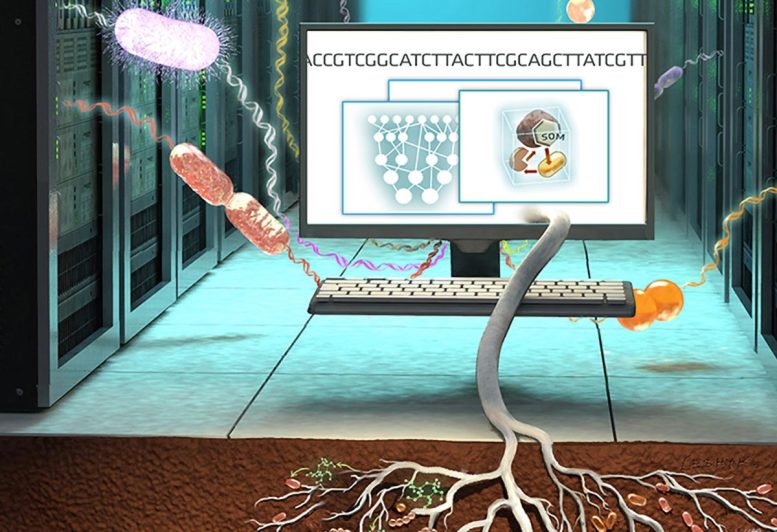
Scientists are delving into the world of soil microbes to improve climate predictions by unlocking their secrets. Climate models play a crucial role in understanding and addressing climate change, but often fail to accurately represent soil microbes, which are key players in ecosystem soil carbon sequestration and the global carbon cycle.
A team of researchers led by the Department of Energy’s Lawrence Berkeley National Laboratory has developed a new model that leverages genetic information from soil microbes. By incorporating this genetic data, scientists can gain a better understanding of how specific soil microbes efficiently store carbon supplied by plant roots. This insight could inform agricultural strategies to preserve carbon in the soil, supporting plant growth and aiding in climate change mitigation efforts.
The research, recently published in the journal Nature Microbiology, highlights the importance of soil microbes in maintaining soil health and carbon sequestration. Soil microbes not only help plants access nutrients and resist environmental stressors but also play a critical role in the carbon cycle by storing carbon in the soil and influencing its release into the atmosphere.
With the vast majority of soil microbes unstudied in the lab, scientists face challenges in accurately representing these microbial communities in climate models. To tackle this issue, the research team used genome information to develop a model that can be tailored to different ecosystems, from grasslands in California to thawing permafrost in the Arctic.
By simulating microbial growth in the root environment and studying plant-microbiome interactions in California rangelands, the researchers discovered distinct microbial growth strategies influenced by root chemistry. This knowledge can improve how root-microbe interactions are represented in models and enhance predictions regarding the global carbon cycle.
Overall, the study underscores the power of using genetic information to predict microbial traits and shed light on the soil microbiome’s impact on the environment. As we gain a better understanding of how carbon cycles through soil, there are opportunities to recommend strategies for preserving carbon in the soil to support biodiversity, plant growth, and climate resilience.

